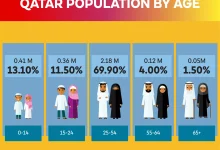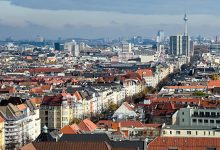The Muslim population in the United Kingdom has been a subject of increasing interest and demographic study in recent years. This article provides a comprehensive overview of the Muslim population in Britain, exploring its growth, distribution, and impact on British society.
Historical Background
The history of Islam in Britain dates back to the 7th century when the first recorded contact between Muslims and the British Isles occurred through Arab traders. However, significant Muslim migration began in the 19th and 20th centuries, with the arrival of seafarers, traders, and laborers. The 1950s and 1960s saw a more substantial influx of Muslims, largely from the Commonwealth countries, as Britain faced labor shortages in the wake of World War II.
Demographic Overview
As of the latest estimates, the Muslim population in Britain is approximately 4.5 million, constituting about 6.7% of the total population. This figure is based on data from the 2021 Census and other demographic surveys. The Muslim population has been growing steadily over the decades due to both immigration and higher birth rates compared to the general population.
Regional Distribution
Muslims in Britain are distributed unevenly across the country, with significant concentrations in urban areas. London, the capital, has the highest number of Muslims, followed by cities such as Birmingham, Manchester, and Bradford. In these urban centers, Muslims often form a substantial percentage of the local population. For example, in London, Muslims make up around 12.4% of the city’s population, reflecting its role as a major hub for diverse communities.
Socioeconomic Profile
The socioeconomic profile of British Muslims is diverse, reflecting a range of backgrounds and experiences. Many Muslims in Britain are of South Asian origin, particularly from Pakistan, India, and Bangladesh, while there are also significant communities from the Middle East, Africa, and other parts of the world.
Economic participation among British Muslims varies. Some are highly educated and employed in professional sectors, while others face challenges such as lower employment rates and higher levels of poverty compared to the national average. This disparity can be attributed to various factors, including educational attainment, discrimination, and the impact of socioeconomic policies.
Religious Practices and Institutions
Islam is practiced across Britain with a high level of commitment. Muslims in Britain observe various religious practices, including daily prayers, fasting during Ramadan, and charitable activities. The establishment of mosques and Islamic centers has been a significant development, providing spaces for worship, community gathering, and educational activities.
The number of mosques in Britain has grown considerably, with estimates suggesting over 1,500 mosques across the country. These mosques serve as focal points for religious and community life, offering services such as prayer facilities, Islamic education, and community support.
Challenges and Contributions
British Muslims, like other minority groups, face challenges including issues of integration, discrimination, and social cohesion. Instances of Islamophobia and prejudice can affect community relations and individual experiences. Nevertheless, British Muslims have made substantial contributions to the cultural, social, and economic fabric of the country.
Muslim communities contribute significantly to various fields, including academia, business, politics, and the arts. Notable British Muslims have achieved prominence in diverse areas, reflecting the dynamic role of Muslims in British society. Additionally, community organizations and charities play a vital role in addressing social issues and supporting local communities.
Political and Social Influence
The political landscape in Britain has seen increasing representation of Muslims, both in local and national government. Muslim politicians and activists advocate for various issues, including social justice, anti-discrimination measures, and community development. The political engagement of British Muslims contributes to the broader discourse on multiculturalism and integration in the UK.
Socially, British Muslims have been instrumental in promoting interfaith dialogue and community cohesion. Efforts to build bridges between different cultural and religious groups are evident in various initiatives and programs aimed at fostering mutual understanding and respect.
Future Trends
Looking ahead, the Muslim population in Britain is expected to continue growing, driven by both immigration and natural increase. The demographic trends suggest an increasingly youthful population with a significant proportion of young people, which may influence future educational and employment needs.
The evolving dynamics of the Muslim population will likely shape discussions on multiculturalism, integration, and policy development. Understanding the diverse experiences and contributions of British Muslims will be crucial in fostering an inclusive and cohesive society.
Conclusion
The Muslim population in Britain represents a vibrant and growing segment of the country’s demographic landscape. With a rich history of migration, a diverse socioeconomic profile, and significant contributions to British society, Muslims play an integral role in shaping the nation’s future. Addressing the challenges faced by the community while recognizing their contributions and potential will be key to ensuring a harmonious and prosperous society for all.





